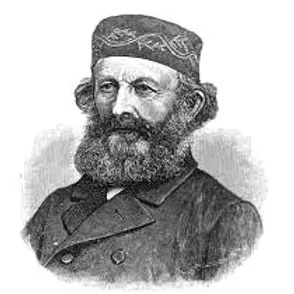 Johann Joseph Wilhelm Lux M.D. (6 April 1776 – 29 January 1849), was a German veterinary surgeon at the University of Leipzig who converted to homeopathy. Lux was a member of the Homoeopathischer Centralverein.
Johann Joseph Wilhelm Lux M.D. (6 April 1776 – 29 January 1849), was a German veterinary surgeon at the University of Leipzig who converted to homeopathy. Lux was a member of the Homoeopathischer Centralverein.
Lux was the founder of veterinary homeopathy alongside Ernst Ferdinand Rueckert, though later in his life he concentrated upon homeopathic isopathy.
After Constantine Hering‘s introduction of the nosodes, Johann Joseph Wilhelm Lux, a well known homoeopathic veterinarian, began to conduct experiments with the isopathic use of disease materials in potencies.
In December, 1831, Lux was asked if he knew any homoeopathic remedies for the treatment of bovine plague and anthrax. Lux replied that he could not suggest any remedies off hand but he offered the following suggestion. He told the person to take a drop of blood of an animal infected with anthrax, and a drop of the nasal mucous of a cow with the plague, and prepare a 30c potency of the material.
During the epidemic in 1832 many veterinarians relied on the complementary use of the nosodes and standard remedies to treat the animals under their care.
Johann Joseph Wilhelm Lux was born in Oppeln. Like Samuel Hahnemann, he was a member of the Leipziger Oekonomischen Gesellschaft (Economic Society of Leipzig).
Samuel Hahnemann wanted to give a lecture about the ‘Homeopathic healing art of animals’, and it is supposed that he held this lecture on one of the meetings of this society – though we have no definite knowledge about this – and Lux thus got first hand knowledge about the treatment of animals. This manuscript was written by Samuel Hahnemann between 1811 and 1821.
Some vets, like Johann Carl Ludwig Genzke, tried to follow his teachings. Others, like Lux, deviated from this path.
Lux came into contact with homoeopathy between 1814 and 1820, that was before Constantine Hering enrolled for his study of medicine at the University of Leipzig! Enthusiastically he adopted the new method of healing, and by 1833 he developed his own form of healing: Isopathy – Aequalia aequalibus.
We know that Lux had contact with Samuel Hahnemann: 1832 he a wrote a letter to Samuel Hahnemann, asking for permission to dedicate Samuel Hahnemann his journal ‘Zooiasis’ , a letter unanswered by Samuel Hahnemann.
In 1834 Samuel Hahnemann wrote a letter to Lux – during this time Lux was administrator of funds of the ‘Heilanstalt of Leipzig’ – reproaching him for not having paid the salaries to the head of doctors, Georg August Benjamin Schweikert.
Lux had a solid background in several sciences:
* from 1793 – 1800 he studied medicine in Oppeln, jurisprudence in Jena, then veterinary medicine in Breslau.
*1800 – 1803 he stayed at the ‘Thierarzneischule’ (College of Veterinary Medicine) in Berlin.
*1803 – 1805 he studied medicine, economy and botany in Leipzig.
*In 1805 he got his degree of ‘Doctor of philosophy’, after having achieved his Magister liberalium artium.
*1805/1806 he held lectures at the University of Leipzig.He started to practice in 1810, and continued to work till 1847. During this time he wrote 14 books, and published several articles. From 1832 to 1837 he was member of the Homoeopathischer Centralverein.
Select Publications:


i have been diagnosed with HIV and i get these boils and bumps. and i read on boilx.com that doctor LUX was the homepathic doctor who they referred to on that site. I’m interested in his studies and would love to get more info on him. I am going back to college and was trying to decide on my major. He, just by referance inspred me!!! So I want to help others but instead of my first choice of computer technology 1st I wanted to major in his feild of study for humans and maybe oneday find a cure to these follicullitis bumps and maybe oneday cure HIV and Aids one day. Thanks for hearing me out :)) thank you jimmy lee brown